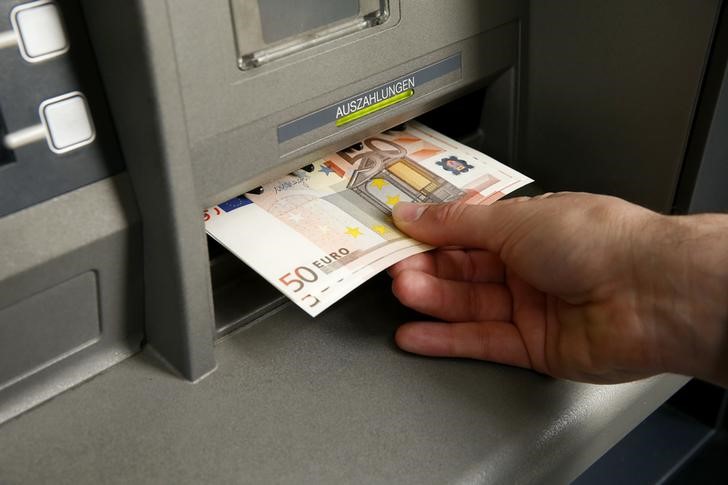BRUSSELS (Reuters) - The euro zone remained in deflation for a second straight month in May, although prices fell by less than in April principally due to a slowdown in the decline of energy prices, according to a first estimate from the EU's statistics agency.
Eurostat said inflation in the 19 countries sharing the euro increased to -0.1 percent in May year-on-year from -0.2 percent in April, in line with market expectations.
Core inflation, which according to the European Central Bank's definition excludes the most volatile components of unprocessed food and energy, also slightly rose to 0.8 percent from 0.7 percent in April.
That figure was also in line with the average forecast of economists polled by Reuters.
Energy prices continued to drop but at a reduced rate. In May they were down 8.1 percent on a yearly basis, from a 8.7 drop recorded in April.
Prices in the services sector, the largest in the euro zone economy, rose 1 percent year-on-year, the highest increase among the main components of the inflation index. They were up 0.9 percent in April.
Eurostat's flash estimate does not include a monthly calculation.
